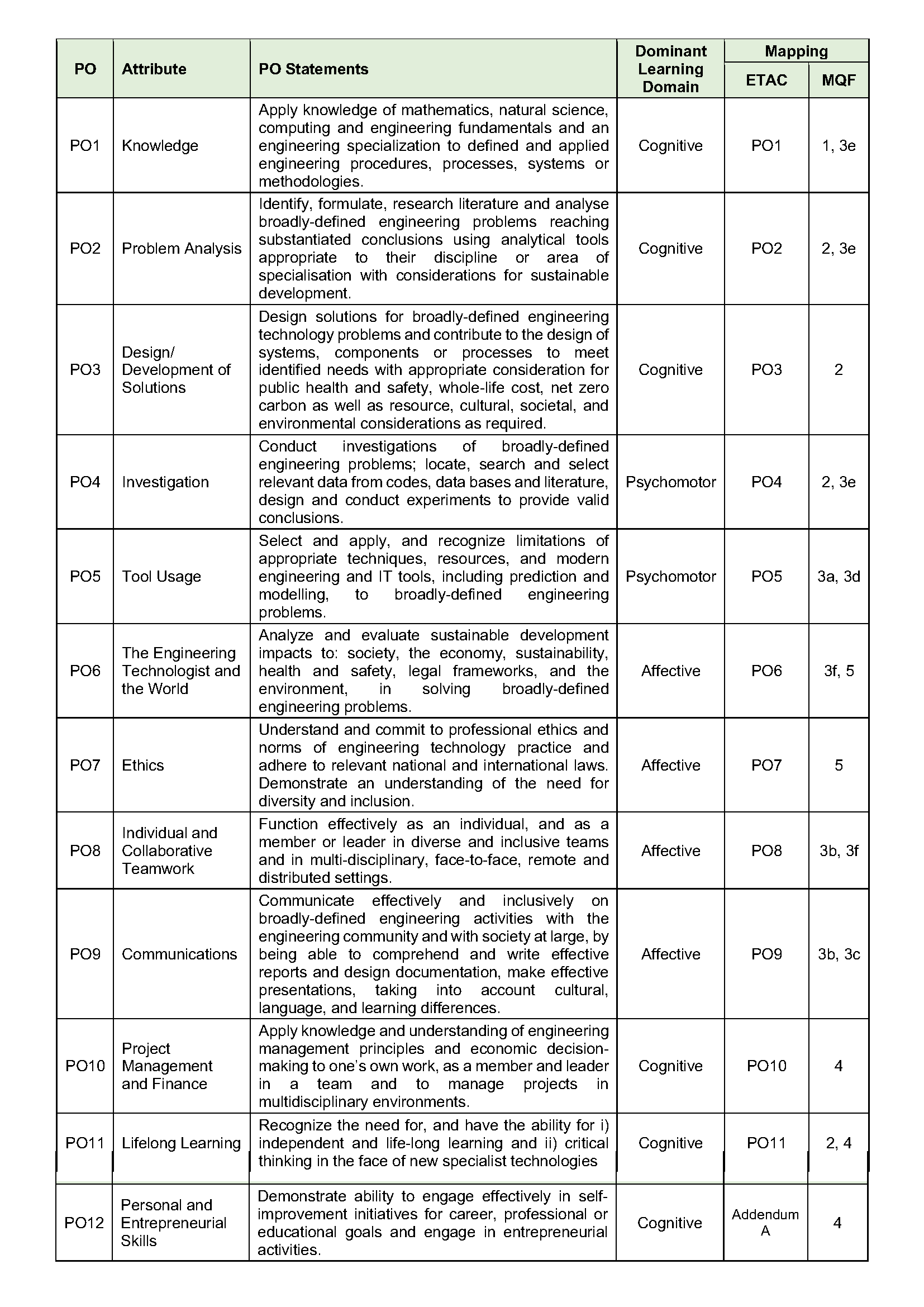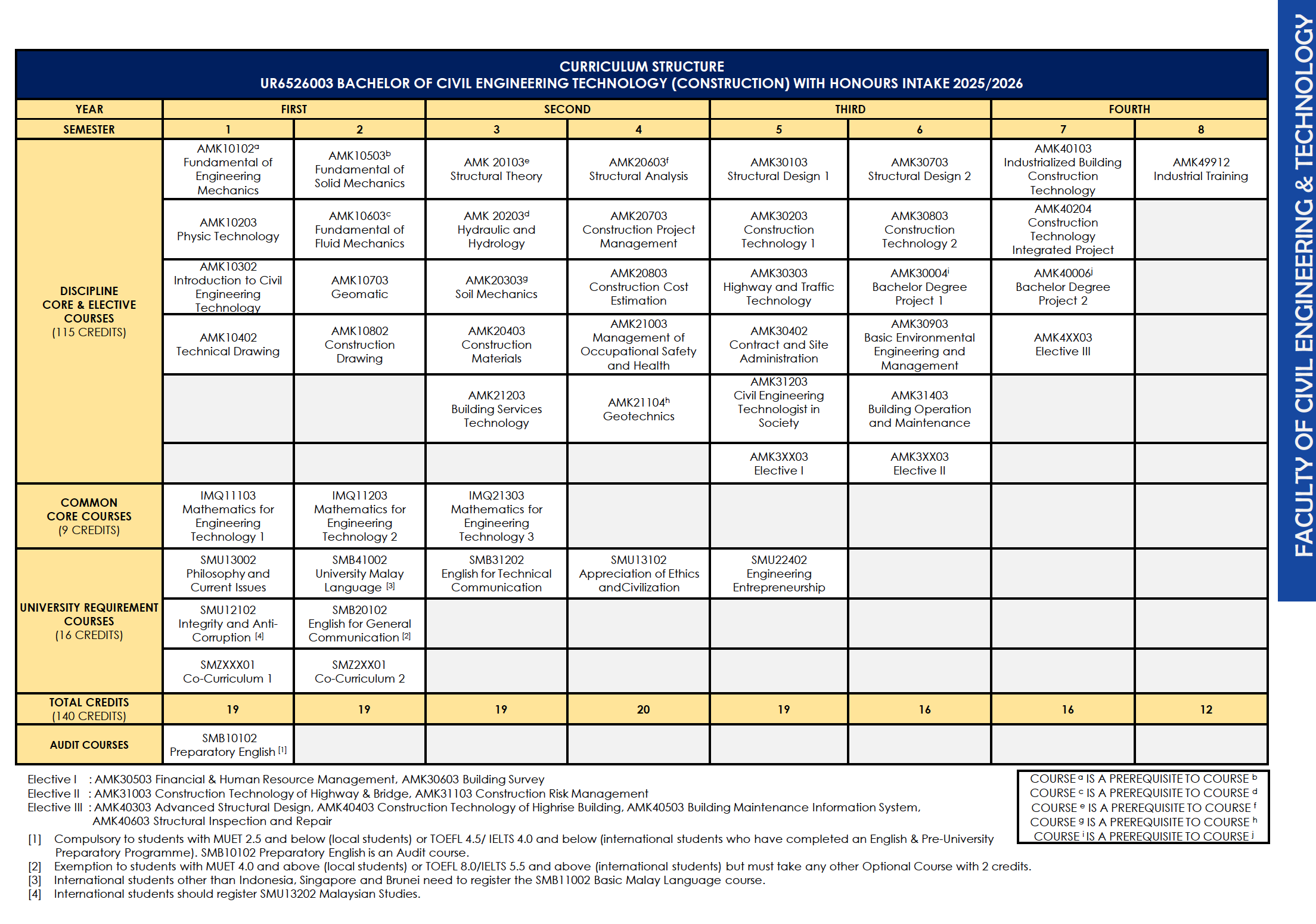Bachelor of Civil Engineering Technology (Construction) With Honours
-
This program is designed to equip students with the essential knowledge and skill needed to enter in construction, operation, maintenance of the built environment and global infrastructure. Therefore, the graduate of this program will have skills in construction, testing, operation and maintenance of building and infrastructure. They also will have the ability to utilize basic construction documents to participate in construction activities.
Career Opportunities- Contractor
- Developer
- Survey Contractor
- Construction Inspector
- Building Inspector
- Project Planner
- Project Control Executive
- Structural Detailer
- Project Coordinator/Manage
-
![]()
Program educational objectives (PEO) are specific goals consistent with the mission and vision of the university, are responsive to the expressed interest of program stakeholders, and describe the expected achievements of graduates in their career and professional life a few years after graduation.
PEO1 Engineering technology graduates engaged in the field of civil engineering technology as demonstrated through career advancement PEO2 Engineering technology graduates who are members and contribute to professional society PEO3 Engineering technology graduates embracing in life-long learning or pursuing continuing education opportunities PEO4 Engineering technology graduates who are technopreneurs -
![]() Program outcomes (PO) are narrower statements that describe what students are expected to know and be able to do by the time of graduation.
Program outcomes (PO) are narrower statements that describe what students are expected to know and be able to do by the time of graduation. -
![]()
-
![]() This programme is recognised by the Board of Engineers Malaysia (BEM) and accredited by the Engineering Technology Accreditation Council (ETAC), ensuring that it meets national professional and quality standards.
This programme is recognised by the Board of Engineers Malaysia (BEM) and accredited by the Engineering Technology Accreditation Council (ETAC), ensuring that it meets national professional and quality standards.




.jpg)